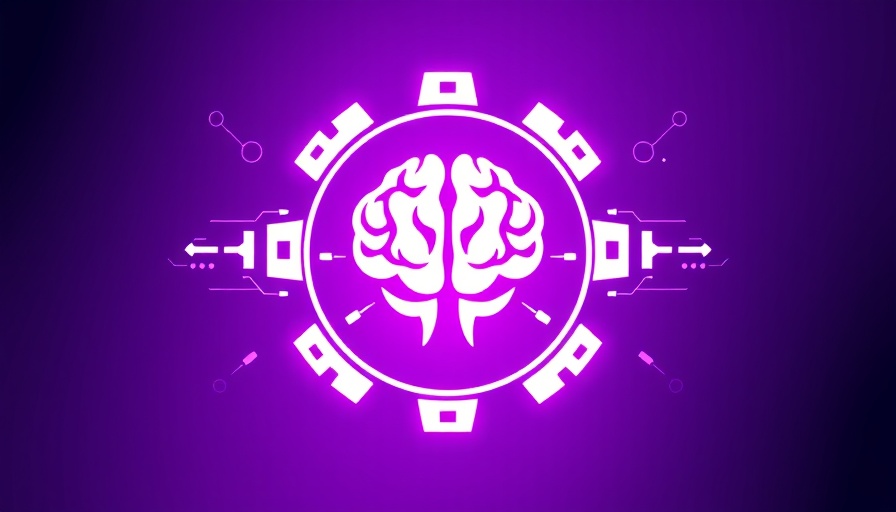
FSU's Annual AI and Machine Learning Expo: A Game Changer in Education
The 2025 Artificial Intelligence and Machine Learning Expo at Florida State University (FSU) is set to revolutionize educational methodologies as scholars and educators unite to explore innovative applications of AI and machine learning in classrooms. This event, taking place on February 28 at the Challenger Learning Center in Tallahassee, is not just a gathering, but a significant step towards integrating cutting-edge technology into the learning sphere. The expo aims to enhance academic experiences for both students and professors, focusing on ethical application while emphasizing the human element that AI cannot replicate.
Innovative Applications: Transforming Learning Outcomes
At the heart of the AIMLX25 is the emphasis on how AI can personalize education. According to Gordon Erlebacher, director of FSU’s Interdisciplinary Data Science Master’s Degree Program, the technologies promise to enhance automation and deliver individualized educational experiences. This is particularly relevant today as educators face the challenge of adapting to diverse student needs, which have increased significantly in recent years.
Furthermore, featured presentations will delve into practical applications such as AI-based grading, lesson planning, and digital learning resources aimed at preparing the next generation for careers within the evolving landscape of technology. In line with this, the expo will showcase hands-on demonstrations illustrating how AI can facilitate real-time feedback and adapt teaching methodologies to fit learners' varying levels of comprehension.
Concerns and Critiques: The Ethical Dimension of AI in Education
While the potential benefits of AI in the educational sector are extensive, ethical concerns surrounding its use remain a pivotal topic of discussion. The expo will address pressing issues such as data privacy, the risk of overreliance on AI tools, and cheating. Associate Professor of English, Michael Neal, will present research that directly challenges the stigma that associates AI with plagiarism. Neal argues for the need to establish a new model of authorship in an era where AI tools are prevalent.
This perspective highlights the necessity of a thoughtful discourse on the responsible integration of technology in the classroom. By opening dialogues on the implications of AI, educators can better ensure that they harness its benefits while mitigating risks, an approach that aligns with insights from industry experts who underscore the importance of preparing students not just to use technology, but to understand it critically.
Future Insights: Enhancing Educational Access and Equity
The diversity of presentations at AIMLX25 signifies a collective movement towards making quality education more ethical and accessible. The discussions will range from utilizing tools like ChatGPT for personalized tutoring to creating engaging digital content in diverse languages. Organizations, such as the International University of Applied Sciences, have demonstrated impressive scalability in their educational offerings through AI-driven video content, broadening access for all students, regardless of their geographical or socio-economic status.
As these themes unfold, a key objective remains the emphasis on equity in educational technology. Addressing technology gaps for underserved communities is crucial to ensuring that AI is an equalizer rather than a divider in the educational landscape. Events like AIMLX25 serve to spotlight these critical conversations, promoting both innovation and integrity in educational practices.
Student Engagement: Bridging Traditional Learning with Technological Advancements
As the field progresses, student engagement becomes ever more vital. AI's role in creating an interactive learning environment cannot be overstated. Innovative methods such as AI-assisted project planning enable students to receive immediate insights and feedback during their learning journey. Workshops that encourage students to reflect on their experiences using AI tools foster a culture of collaboration and creativity—skills essential in today's interconnected world.
Experts suggest that the integration of AI in education is about more than merely enhancing productivity; it opens doors to new forms of creativity and collaboration. The potential is vast for developing custom learning experiences that cater to individual needs, ultimately leading to a richer educational landscape.
Call to Action: Embrace the Future of Education Today
The AIMLX25 not only represents a convergence of technology and education but also challenges educators and innovators to collaboratively shape the future of learning in our society. AI is here to stay, and the sooner we embrace it, the better equipped we will all be. Explore the future of education and register for FSU’s AIMLX25 Expo to learn how you can harness these advancements for transformative impact in your educational journey.
 Add Row
Add Row  Add
Add 




 Add Row
Add Row  Add
Add 

Write A Comment